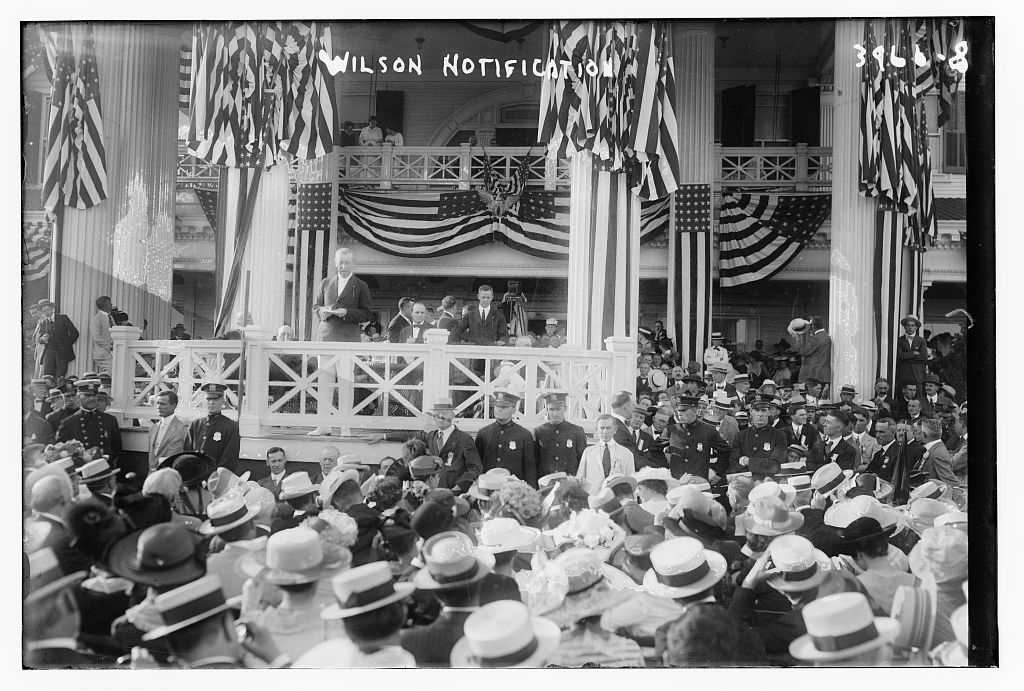Woodrow Wilson and Poland’s Independence
Chapter 4: The Election of 1916
1916 was an election year for Wilson. Democrats worked to get Wilson the
support of various ethnic groups, including Polish-Americans. Wilson had scored points
with Polish voters by appealing to the various belligerent powers to allow the U.S. to send food, goods, and money to the war-torn Polish provinces. Wilson did this at the request of the Polish Central Relief Committee, a united organization comprised of various Polish-American groups. Wilson did not manage to secure a guarantee by any
of the belligerents ensuring protection of the relief shipments. Joseph Patrick Tumulty,
the President’s private secretary, advised Wilson to make public the news of the inability
of the belligerents to agree to relief efforts. Tumulty didn’t want the President to appear
as though he was hoarding the bad news until after the election, as a play for votes.
Wilson followed Tumulty’s advice and his efforts carried favor with Polish-Americans.

Photo: President Woodrow Wilson at Shadow Lawn, near Long Branch, New Jersey, receiving news of his 1916 Democratic Party presidential candidate nomination. Bain News Service, Publisher. Wilson Notification. , 1916. Photograph. Library of Congress Prints and Photographs Division Washington, D.C. https://www.loc.gov/item/2014702645/.
Wilson showed a willingness to use his powers to assist the Polish relief effort. He still, however, refused to publicly support Polish independence before the election. Democratic Party operative Norman Hapgood notified the President at the end of October 1916 that Jean Horodyski, a Polish nationalist active in the U.S. and Britain, sought to have the President give at least a general reference to the right of nationalities in the peace settlements during a campaign visit in Buffalo, New York. Horodyski, in Chicago for a meeting with Illinois Polish leaders, felt such action, which would be reported in America’s Polish newspapers, would deliver to Wilson Polish and Czech votes.
Wilson did not acknowledge this request. The President did not make any
reference to Polish independence before the election, nor any general reference to
self-determination. Wilson instead stuck to his belief in a united America. In a campaign
speech he made at Buffalo, Wilson told his audience that The great challenge to the
people of the United States just now is to cultivate unity of spirit and unity of object.
The President reminded his audience that many in America have every sort of native
interest connected with the places of their birth, with the connections to which they are
tied by affection and old traditions.
[R]ival interests
of different ethnic groups cause disunity. Wilson summed it up by saying, if men of different nationalities are going to
look upon each other with suspicion, there will not be the unity in the United States
which ought to bind it together in order that it may have a singleness of heart and unity of
purpose.
There is no documentation available that states Wilson intended these words to be directed to Horodyski, Paderewski, and Polish-Americans. These words, however, do foreshadow the President’s future remarks in 1917 and 1918 that it would be unfair to recognize Polish independence at a time when other nationalities demanded the same for their homeland. If one country gets recognition, then others will want it. If only one or a few countries get recognition while others do not, then jealousies and divisions could occur. As Wilson stated, he wanted unity in the country and would not allow this goal to be disrupted by one interest group.